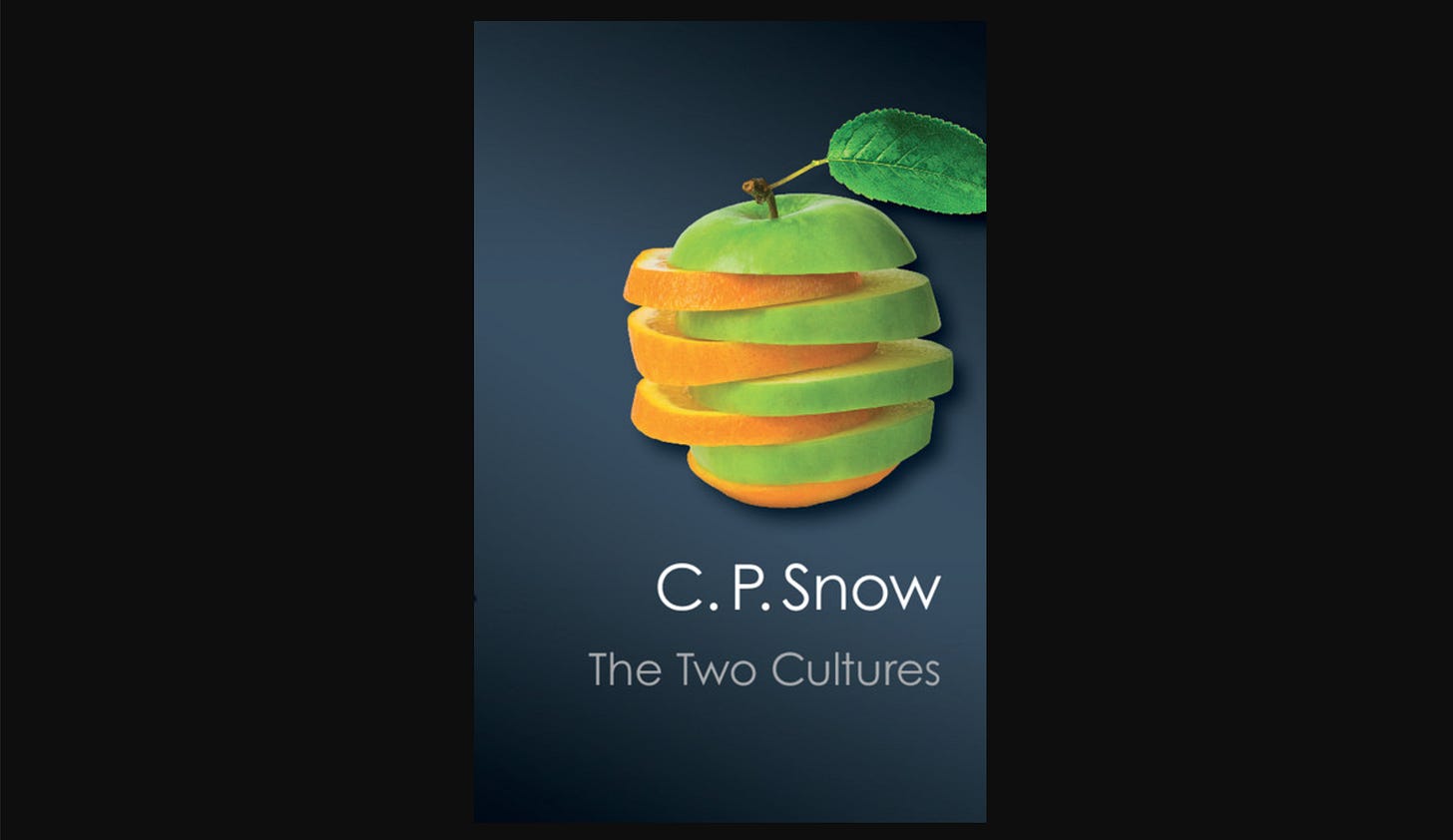The Two Cultures
The slow, steady march to top-down global governance took another step in 1959 at the University of Cambridge.
At that year’s annual Rede Lecture.
The speaker on the occasion was molecular physicist Charles Percy Snow1. And the speech delivered was titled ‘The Two Cultures and the Scientific Revolution’2. And this speech was of great importance, because he identified a growing separation of the social and natural sciences, which presented a major hindrance to modern problem solving. Consequently, he urged efforts towards the integration of the two, especially in the context of education, hence preparing the future generations to be more adaptable across associated scientific fields.
Does any of that ring a bell? Well, it should. Because that alleged culture problem is pretty much exactly what Kenneth Boulding outlined in his 1956 paper, ‘General Systems Theory - The Skeleton of Science’.
The lecture isn’t particularly exciting, to be quite frank. He drones on and on rather a lot, but let’s just go through a few parts -
‘It was through living among these groups and much more, I think, through moving regularly from one to the other and back again that I got occupied with the problem of what, long before I put it on paper, I christened to myself as the 'two cultures'‘
Problem!
‘No, I intend something serious. I believe the intellectual life of the whole of western society is increasingly being split into two polar groups. When I say the intellectual life, I mean to include also a large part of our practical life, because I should be the last person to suggest the two can at the deepest level be distinguished. I shall come back to the practical life a little later. Two polar groups: at one pole we have the literary intellectuals, who incidentally while no one was looking took to referring to themselves as 'intellectuals' as though there were no others… Literary intellectuals at one pole—at the other scientists, and as the most representative, the physical scientists‘
And the problem is caused by literary intellectuals, and the ‘other’, natural scientists.
‘Their attitudes are so different that, even on the level of emotion, they can't find much common ground‘
… and it’s a predictable disaster. Of which few probably were even aware, never mind having considered back in 1959.




